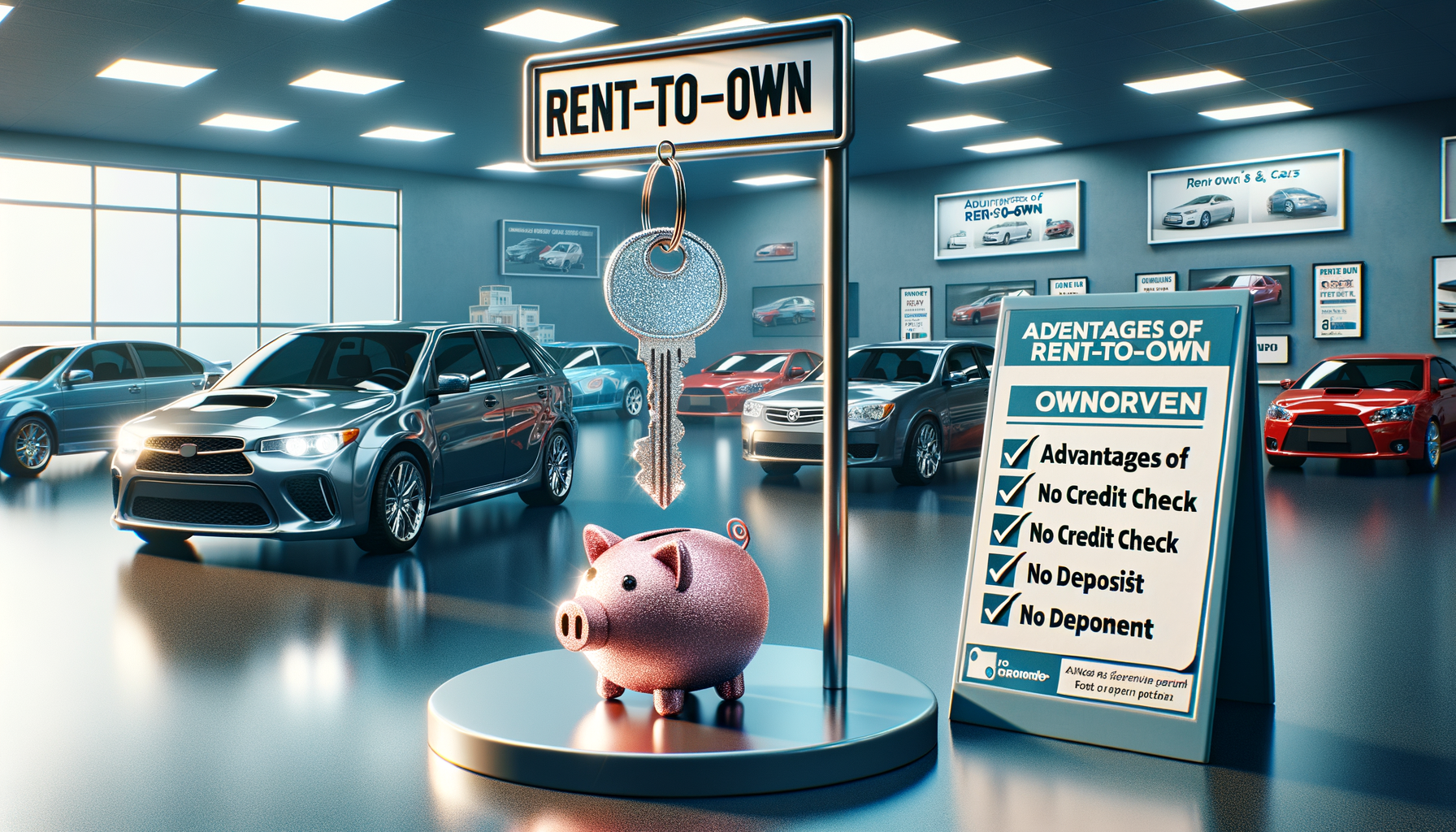Introduction to Rent-to-Own Cars
In today’s fast-paced world, the need for personal transportation is more pressing than ever. However, not everyone can easily access traditional car financing due to credit issues or financial constraints. This is where the concept of rent-to-own cars comes into play. This model provides a unique alternative for individuals who might struggle with conventional auto loans. Rent-to-own cars offer a pathway to vehicle ownership without the hurdles of credit checks or large deposits, making it an attractive option for many.
The rent-to-own model essentially allows individuals to rent a vehicle with the option to purchase it at the end of the rental term. This approach is particularly beneficial for those with poor credit histories, as it typically involves no credit checks. Additionally, the absence of a hefty deposit makes it accessible to a broader audience. This alternative can be a game-changer for those in need of reliable transportation but lacking the financial means to secure a traditional car loan.
How Rent-to-Own Cars Work
Understanding the mechanics of rent-to-own cars is crucial for making an informed decision. The process begins with selecting a vehicle from a rent-to-own dealership. Unlike traditional car purchases, this model allows you to start driving the car immediately, as long as you agree to the terms of the rental agreement. These terms typically include a set rental period, after which you have the option to buy the vehicle.
One of the key features of rent-to-own agreements is the flexibility they offer. Payments are usually structured to be manageable, often on a weekly or bi-weekly basis. This can be particularly advantageous for those with fluctuating incomes. Over time, these payments contribute towards the eventual purchase of the car, effectively turning rental payments into equity. This gradual accumulation of ownership can be a significant benefit for those who might otherwise be unable to finance a vehicle.
It’s important to note that while the rent-to-own model provides an accessible route to car ownership, it also requires careful consideration of the terms and conditions. Potential buyers should thoroughly review the agreement to understand any additional fees or obligations that might arise during the rental period.
Advantages of Rent-to-Own Cars
Rent-to-own cars come with several advantages that make them appealing to a wide range of consumers. One of the most significant benefits is the ability to acquire a vehicle without undergoing a credit check. This feature is particularly beneficial for individuals with poor or no credit history, offering them a chance to build credit through consistent payments.
Another advantage is the absence of a large upfront deposit. Traditional car loans often require a substantial down payment, which can be a barrier for many. With rent-to-own agreements, the lack of a deposit lowers the entry threshold, making it easier for individuals to access the vehicles they need.
Furthermore, the flexibility in payment schedules allows renters to manage their finances more effectively. This adaptability can be crucial for those with irregular income patterns. Additionally, the option to purchase the car at the end of the rental period provides a sense of security and future ownership, which can be motivating for many.
Considerations and Potential Drawbacks
While rent-to-own cars offer numerous benefits, there are also considerations and potential drawbacks that prospective buyers should be aware of. One of the main concerns is the overall cost. Rent-to-own agreements can sometimes result in higher total payments compared to traditional financing options. This is due to the combination of rental fees and eventual purchase price.
Additionally, it’s important to be aware of any hidden fees or penalties that might be included in the agreement. These can include charges for late payments, early termination, or additional maintenance costs. Carefully reviewing the contract and understanding all potential costs is crucial to avoid unexpected expenses.
Moreover, the condition of the vehicle at the end of the rental term can affect the decision to purchase. Renters should ensure they maintain the car properly and keep track of any required maintenance to avoid issues when deciding to buy the vehicle.
Conclusion: Is Rent-to-Own Right for You?
Deciding whether a rent-to-own car is the right choice depends on individual circumstances and financial goals. For those with limited financial resources or poor credit, this model provides a viable path to vehicle ownership. It offers flexibility, accessibility, and the potential to build credit over time.
However, it’s essential to weigh the benefits against the potential costs and obligations. Understanding the terms of the agreement and being mindful of the total financial commitment is key to making a sound decision. Ultimately, rent-to-own cars can be an excellent option for those who need immediate access to a vehicle and are willing to work towards ownership through a structured payment plan.




Leave a Reply